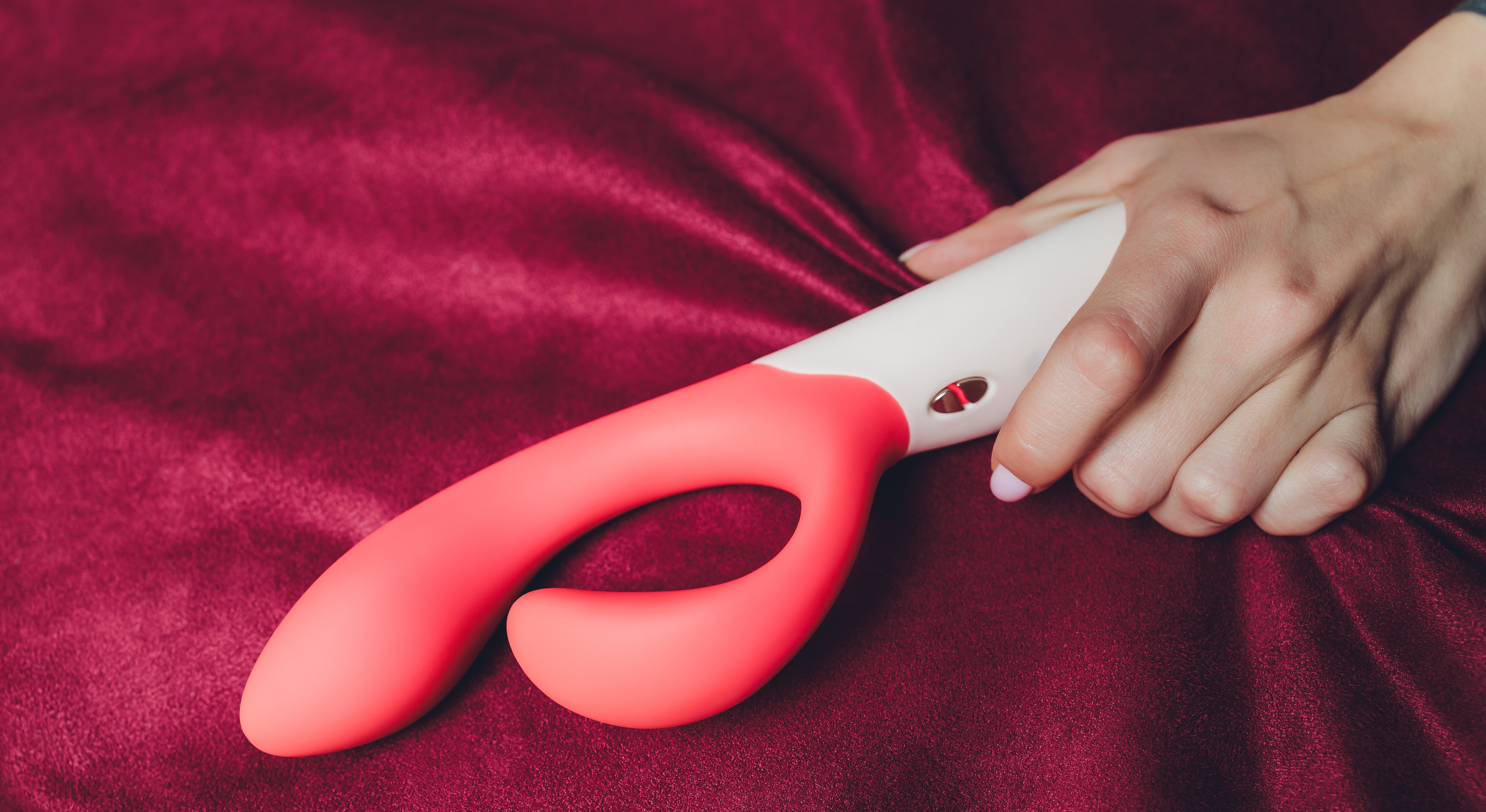Are vibrators bad for your health? Our experts have the lowdown on how to enjoy sex toys safely
We're all about taking control of your own pleasure but are vibrators bad for your health? Here's everything you need to know

According to a study by Indiana University’s Center for Sexual Health Promotion, roughly 50% of American adults indicate using a vibrator. And women using vibrators report better sex, including higher sexual desire and arousal, as well as orgasm.
But are vibrators bad for your health? From yeast infections to what you should look for when buying different types of vibrators, our sexual health experts have the answers so you can enjoy sex toys safely.
- The best app-controlled vibrators: sex toys to use alone or with a partner
- What are the best sex positions for menstrual cramps?
- Sex toy safety standards—how to make sure your sex toy is safe to use
Are vibrators bad for your health?
1. Can vibrators cause yeast infections?
“If sex toys are not properly cleaned between each use, either by an individual or by another person, you can risk infections or upsetting the pH balance of the vagina which can then lead to a yeast infection,“ says Kate Moyle, sex and relationship expert for Swedish intimate brand, LELO. “This is because bacteria can be passed between users, or can remain on a sex toy if it's not correctly cleaned.“
2. Do vibrators cause loss of sensitivity?
“There is no evidence to suggest that vibrators create a loss of sensitivity. However, some people may report worries or concerns about over-use of sex toys and that this has changed their sensitivity,” says Moyle.
“What can happen, as with anything in life, is that we learn, or become used to, one type of sensation, and so someone might feel that they need to increase the intensity to reach a pleasure experience that they feel that they used to achieve.” Sound familiar? Try mixing up the intensity of stimulation so you don’t get stuck in a sexual routine.
3. Can vibrators pass STIs?
Yes, if you share your sex toys with a partner or between sexual partners, you can contract and pass sexually transmitted infections (STIs).
“This can happen if sex toys are not properly cleaned before use, or condoms are not used. This is because bacteria can be transferred from bodily fluids onto the toy and then onto the next user (whether that is yourself at a later date or a partner),” says Moyle.
4. Can you use a vibrator while on your period?
Absolutely! “It's about personal preference. For some people, they can feel more aroused or sensitive when they are on or around their period, and for others, it feels like a very non-sexual time,” says Moyle.
Feeling frisky on your period? “Try putting a towel down, or using a waterproof vibrator in the shower,” says Kate. Studies suggest an orgasm might also be just what the doctor ordered for relieving period pains, and that rush of feel-good endorphins can even help tackle your period-related stress. Win-win!

5. What to look for when buying a vibrator?
“When it comes to buying a sex toy, we need to be conscious of what we’re putting on and in our body,” says Moyle. “Look for the term 'medical-grade,' which is an indicator of the highest quality of material; the term 'body safe' is also a good indicator of material quality.”
When we use sex toys we can leave behind bodily fluids, which can contain bacteria. This can build up in porous materials, which could trigger an infection. “Porous materials such as PVC, rubber, and latex include tiny invisible (microscopic) defects, which can potentially harbor bacteria and other organisms even after cleaning,” adds Dr. Anne Henderson, consultant obstetrician and gynecologist on behalf of women’s intimate health brand, Canesten.
“This group of products is harder to clean than the non-porous versions, such as silicon, stainless steel, and most plastics. In general, it is safer to use non-porous toys particularly if these are to be shared.”
6. How often should you clean your vibrator?
“Sex toys should be cleaned after every single use or when transferred between partners,” says Dr. Henderson. “All sex toys come with instructions about cleaning. Where problems occur is anal versus vaginal use, because you’re transmitting bacteria directly from the bowel to the vagina. That will be potentially disastrous because it's the bowel bacteria that are the primary causes of many vaginal and bladder infections.”
For more information, our guide on how to clean sex toys is essential.
7. What should you use to clean your vibrator?
“There are sex toy cleaning products such as LELO's Sex Toy Cleaning Spray, which are specifically designed with sex toys in mind,” says Moyle. “Sex toys (make sure that it's a waterproof toy if you are fully submerging them) can also be cleaned with unscented, or antibacterial soap and water, and dried and stored afterward.”